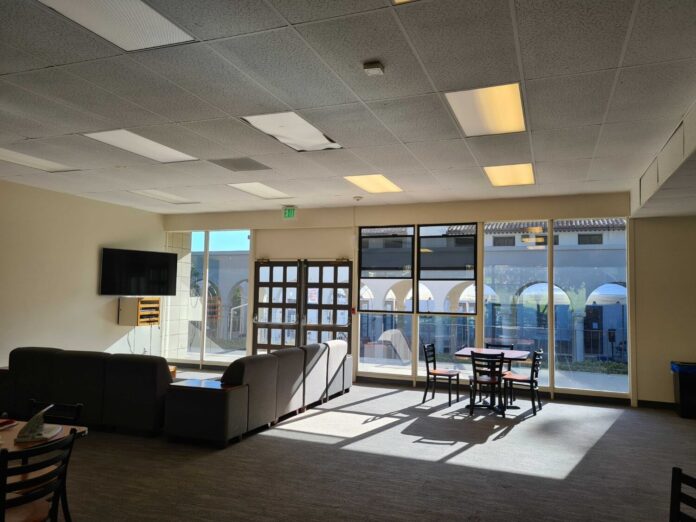Southern California faced a record-breaking heat wave at the beginning of the school year, with temperatures as high as 108. With six out of 13 dorms not having air conditioning, Occidental’s administration took unprecedented measures, including allowing students to sleep in common areas of non-residential buildings like the Tiger Cooler.
In an Aug. 31 email sent by Dean of Students Rob Flot, the college offered free movie tickets at the local AMC Theatre in Glendale to anyone living in residence halls with no air conditioning. The email also announced that the De Mandel Aquatics Center and the Library and Academic Commons would have extended hours during the heat wave to help students cool down.
Assistant Dean of Students and Director of Residential Education & Housing Services (REHS) and Student Conduct Isaiah Thomas was one of the main administrative staff members handling protocols in response to the heatwave. According to Thomas, REHS has been working closely with Facilities Management and the division of Finance, Planning and Operations to respond to student needs.
“The current unprecedented heat wave has been challenging to navigate,” Thomas said via email. “REHS, as well as other offices, aided in providing as many short term measures as we were able to provide, such as identifying additional cooling spaces throughout campus, and providing social activities in cooled spaces as a break from the heat of the residence halls. These options were not meant to be a substitute for our longer term needs, but rather ideas that REHS could implement with the resources we currently have available.”
Thomas said he is grateful to the many college staff members in academic affairs, athletics, facilities, campus safety and other departments for their support delegating additional staff and extending hours around campus.
David Caldwell, the director of facilities management, also offered insight into the new policies, like allowing students to sleep in common spaces such as the Tiger Cooler.
“It’s not ideal to have our students sleeping in spaces that aren’t their own,” Caldwell said via email. “I can say that ensuring safe, comfortable living spaces have been a continued focus of discussion with Occidental’s leadership since I arrived. With climate change an ongoing reality, and the student experience foremost in mind, the Facilities Department is working with college leadership to consider all possible strategies to address the lack of AC across campus and ensure this situation does not repeat itself.”
Because of rising temperatures, Caldwell said he believes these policy changes will likely only become more frequent in the future.
“Similar and expanded initiatives are bound to be part of our future planning as we ensure that life at Oxy and the student experience remains vibrant even in the face of longer, hotter summers,” Caldwell said.
The lack of air conditioning in dorms remains a problem in the minds of many students. According to Thomas, however, the department has already voiced its support for change.
“REHS has advocated for additional cooling resources in our non-air conditioned spaces for several years (such as the temporary air conditioning units in common lounges of non-air conditioned halls, and increased language about evaporative coolers) and will continue to advocate for other resources,” Thomas said via email.
While REHS’ efforts didn’t go unnoticed by students, according to Maya Sisk (first year) the heat wave took a toll on dorm life.
“[Living in Chilcott was] like an oven, like you’re drinking water when you breathe,” Sisk said.
Rachel Aujero (first year) said that policies in response to the heat wave have had negative consequences for the student experience on campus.
“[These policies] are limiting what students can actually do, and the connections one makes,” Aujero said. “It is hard for students to socialize, and get their work done when the heat is a pressing issue in the back of o
![]()































